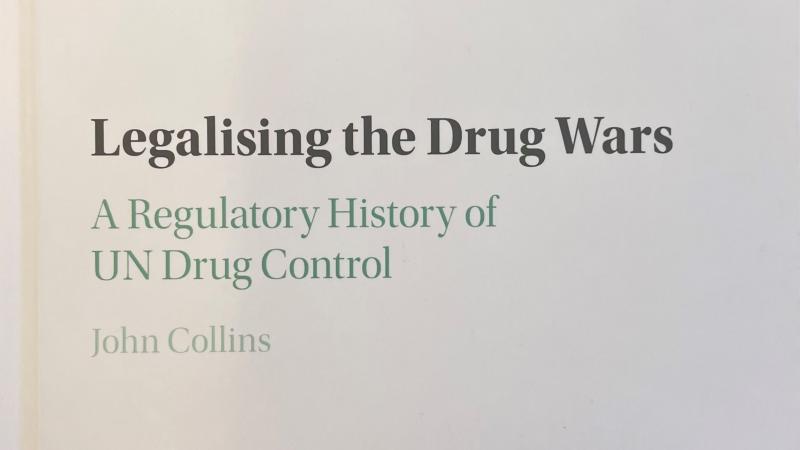
Where did the regulatory underpinnings for the global drug wars come from? This book is the first fully-focused history of the 1961 UN Single Convention on Narcotic Drugs, the bedrock of the modern multilateral drug control system and the focal point of global drug regulations and prohibitions. Although far from the propagator of the drug wars, the UN enabled the creation of a uniform global legal framework to effectively legalise, or regulate, their pursuit. This book thereby answers the question of where the international legal framework for drug control came from, what state interests informed its development and how complex diplomatic negotiations resulted in the current regulatory system, binding states into an element of global policy uniformity.
‘Drug wars come not just from populist politicians or prohibitionists, but from a complex and contested international regulatory system more than a century in the making. John Collins gives us a lucid and subtly revisionist history of the international drug-control system, and explores its implications for current drug-policy debates. Based on prodigious archival research and years of engagement in the field, this book is indispensable for anyone seeking to understand the politics of global drug regulation and its consequences for our own time.’
David T. Courtwright - author of Forces of Habit and The Age of Addiction
‘The origins and evolution of the global drug wars remain largely unexplored in the field of international relations. Dr Collins has filled a big gap in the literature in a work that encompasses both theory and history of international relations to explain how multilateral and national drug policies developed over the last century. In a time of rapid policy flux within global institutions more broadly, and drug policy specifically, this book is a timely and highly important work.’
Michael Cox - Founding Director LSE IDEAS
‘The first history of the 1961 Single Convention, the bedrock of modern international drug control. Archival research and his own engagement with the current UN drug-control system give John Collins a unique position, straddling history and policy. Collins shows that the system which emerged from the old colonial powers in Europe after World War Two is not just the vehicle for US prohibition, but a much more complex and malleable regulatory system.’
Virginia Berridge - Department of Public Health, Environments and Society, London School of Hygiene and Tropical Medicine
‘The global drug control regime is in flux right now, challenged by cannabis legalization on the one hand and by the growing array of New Psychoactive Substances such as fentanyl analogues on the other. John Collins' new history of the emergence of that regime, which has prevailed largely unchanged for 60 years, demonstrates just how contested it was from the beginning. The sharply prohibitionist interpretation of many decades was a choice, not a requirement. The book presents a great deal of fresh evidence.’
Peter Reuter - Distinguished University Professor, School of Public Policy and Department of Criminology, University of Maryland
'This book is a timely and important history of an issue of immense global importance. For countries that feel like they have been cycling a stationary bike for many decades fighting the “war on drugs” it is important to go back and look to the origins of the current set of policies in order to understand how they can be changed. This book provides key insights and explanations for policy choices that we now take for granted but should be viewed through a new lens of science and policy pragmatism.'
Juan Manuel Santos - Former President of Colombia, Nobel Prize Laureate and Member of the Global Commission on Drug Policy